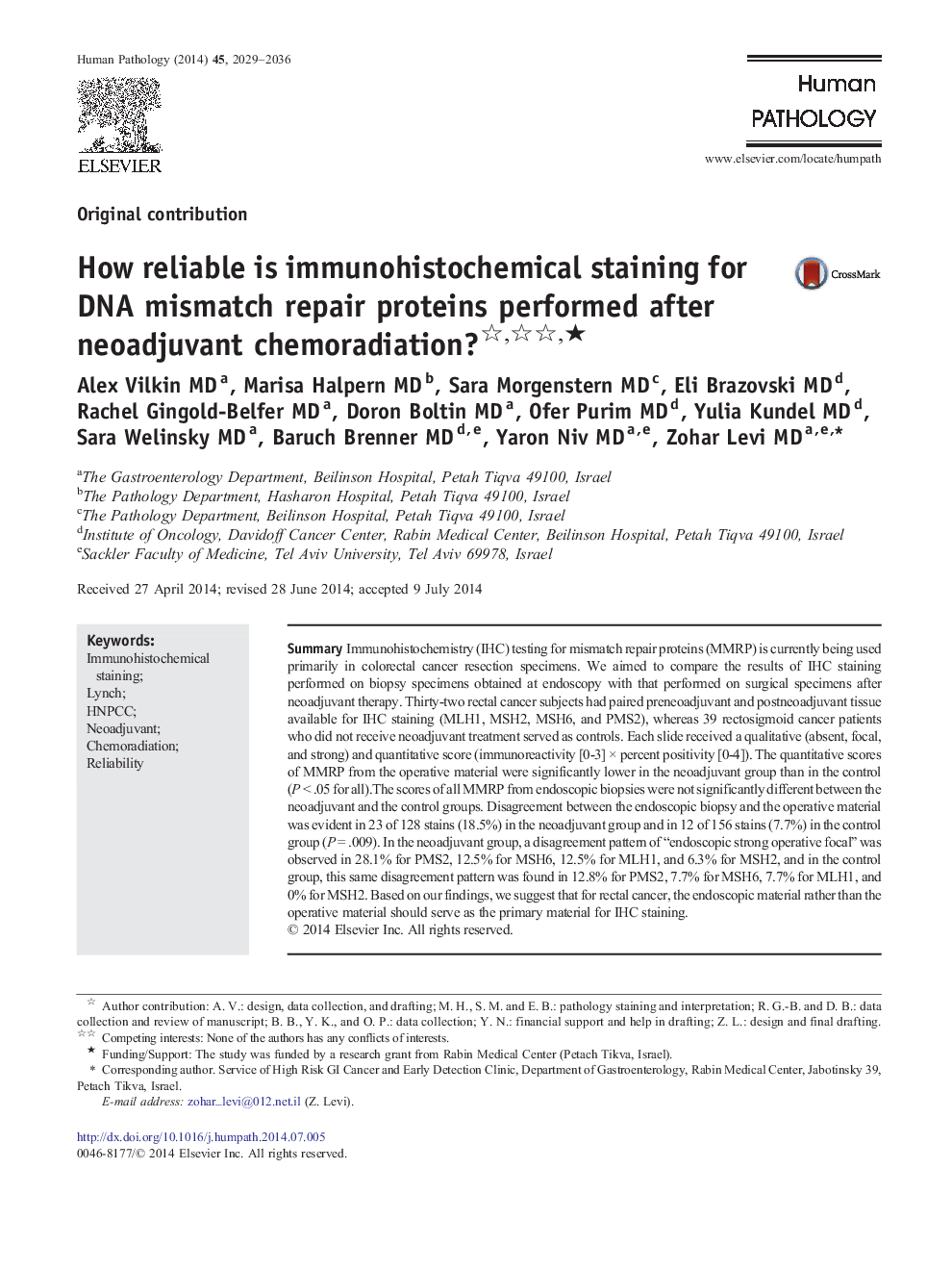| Article ID | Journal | Published Year | Pages | File Type |
|---|---|---|---|---|
| 4133517 | Human Pathology | 2014 | 8 Pages |
SummaryImmunohistochemistry (IHC) testing for mismatch repair proteins (MMRP) is currently being used primarily in colorectal cancer resection specimens. We aimed to compare the results of IHC staining performed on biopsy specimens obtained at endoscopy with that performed on surgical specimens after neoadjuvant therapy. Thirty-two rectal cancer subjects had paired preneoadjuvant and postneoadjuvant tissue available for IHC staining (MLH1, MSH2, MSH6, and PMS2), whereas 39 rectosigmoid cancer patients who did not receive neoadjuvant treatment served as controls. Each slide received a qualitative (absent, focal, and strong) and quantitative score (immunoreactivity [0-3] × percent positivity [0-4]). The quantitative scores of MMRP from the operative material were significantly lower in the neoadjuvant group than in the control (P < .05 for all).The scores of all MMRP from endoscopic biopsies were not significantly different between the neoadjuvant and the control groups. Disagreement between the endoscopic biopsy and the operative material was evident in 23 of 128 stains (18.5%) in the neoadjuvant group and in 12 of 156 stains (7.7%) in the control group (P = .009). In the neoadjuvant group, a disagreement pattern of “endoscopic strong operative focal” was observed in 28.1% for PMS2, 12.5% for MSH6, 12.5% for MLH1, and 6.3% for MSH2, and in the control group, this same disagreement pattern was found in 12.8% for PMS2, 7.7% for MSH6, 7.7% for MLH1, and 0% for MSH2. Based on our findings, we suggest that for rectal cancer, the endoscopic material rather than the operative material should serve as the primary material for IHC staining.
